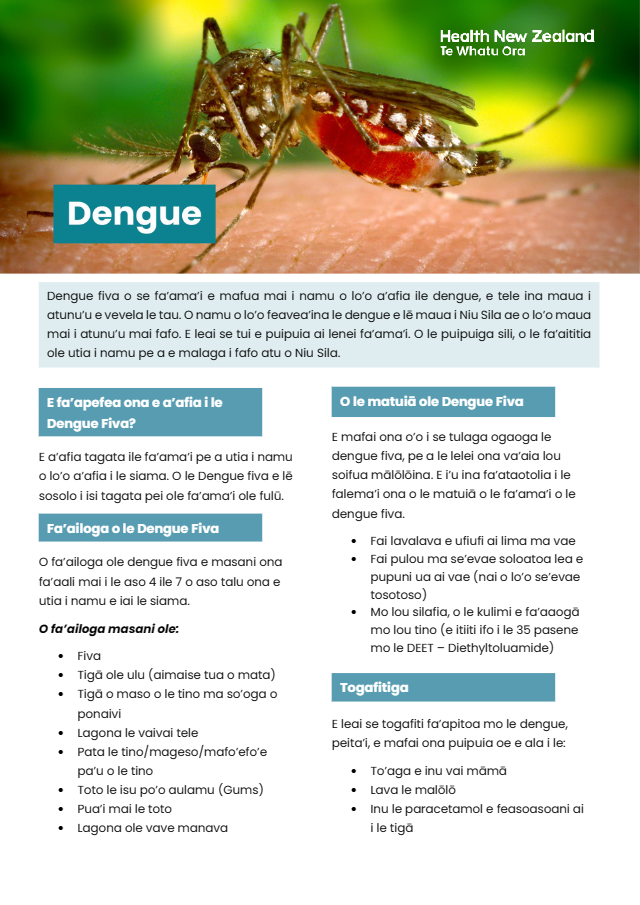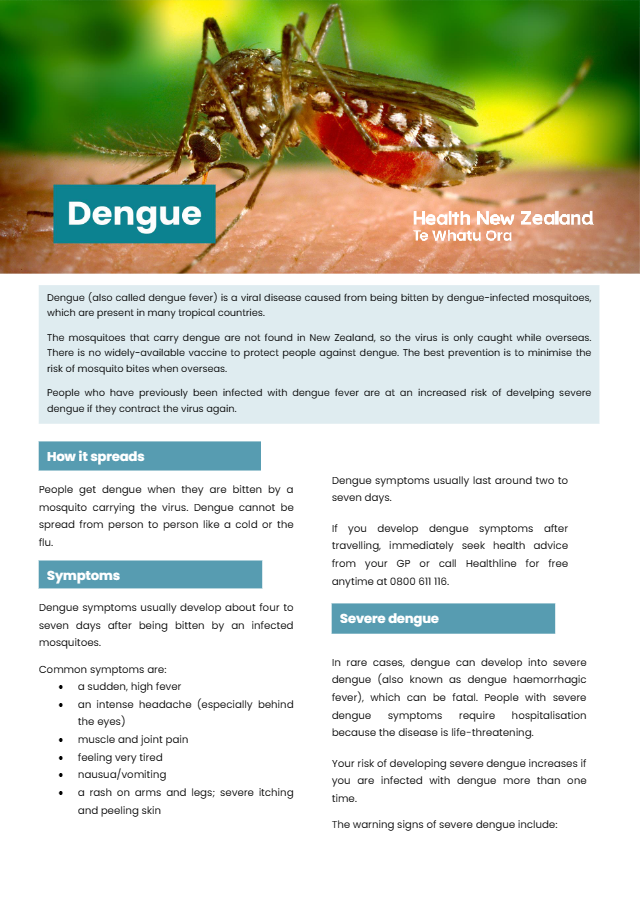

Transmission of dengue fever
Dengue fever is not spread from person to person. A person becomes infected with the dengue virus after being bitten by an infected mosquito.
Symptoms of dengue
While many people with dengue do not have symptoms, or only feel mildly unwell, some may experience the following symptoms:
• sudden onset of fever
• headache, particularly retro orbital
• myalgia and arthralgia
• a fine rash, which may be itchy, usually begins on the extremities, but spares the palms and soles of the feet
• weakness
• depression
• anorexia
• abnormal taste
• sore throat
• coughing
• vomiting
• abdominal pain.
Symptoms usually start 3 to 14 days after being bitten by an infected mosquito. They can last from 2 to 7 days.
Warning signs of severe dengue
A small number of people may get severe dengue within 2 to 5 days of their symptoms starting. This is more likely to occur the second time a person is infected with dengue, when it may constitute dengue haemorrhagic fever. Warning signs include:
• severe abdominal pain
• mucosal bleeding
• liver enlargement
• fluid accumulation
• persistent vomiting.
People with severe dengue symptoms should be referred to hospital for management of haemorrhagic manifestations and possible hypovolaemic shock.
Management of dengue
Please follow HealthPathways advice for Fever in Returning Travellers.
Laboratory testing involves full blood count (leucopenia, thrombocytopenia, elevated ALT, increased HCT), and testing for the dengue virus (PCR) or antigen and/or serology tests.
Treatment is supportive, but NSAIDS (ibuprofen/aspirin) should be avoided. Seek infectious diseases advice if concerned, including if your patient has previously had dengue or there are any signs of bleeding.
Public health management: no isolation is required. Notification should be made to the local medical officer of health on suspicion.
Advice for patients travelling to Samoa
• Please advise travellers to Samoa to protect themselves from mosquito bites when they are in Samoa, and to contact their GP or Healthline if they develop a fever or other symptoms after their return to New Zealand.
• If travellers develop symptoms while in Samoa, they may need to seek healthcare locally.
• Encourage them to check the latest public health advice – further information about dengue is available here and guidance on how to stay healthy when travelling is available here.
• Additional safe travel advice for those travelling to Samoa can be found here.
If you require any support, you think you may have dengue fever like symptoms please contact your doctor or our office, 0800 727 924













